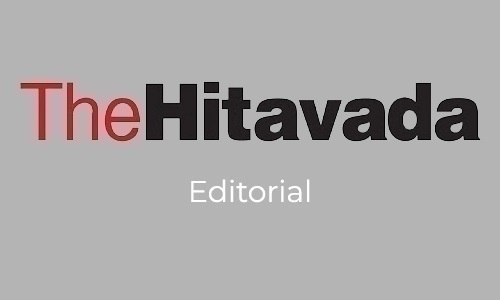IS IT POSSIBLE?
| Date :03-Mar-2024 |

PITCHING for ethical political discourse during the campaigning for the upcoming general elections the Election Commission of India (ECI) has released an advisory asking parties to refrain from seeking votes on the basis of caste, religion and language. The earnest appeal has come just days ahead of the Lok Sabha elections for which parties are already in election mode.
The advisory, thus, comes as a valiant effort to cut clutter in the campaigning but in reality it serves merely as a lip-service. For, in a country where caste and sub-castes play a dominant role in choosing of public representatives, believing in ethical discourse during campaigns still remains a distant dream.
Election campaigning is a tricky and sensitive subject where many a stalwart has stepped on the banana skin in one’s political career. Striking a balance between ethical discourse and appealing to the core base of voters according to their identities is not an easy task. The election machinery and electoral thought process in India itself has revolved around ethnic identities as well as religious affiliations. This is a fact that each Indian will have to accept without any conditions. Against these realities, how much power the EC advisory for political parties can hold is anybody’s guess.
That caste and religion still form the essence of electoral strategies can be seen from the continuous debate and demands over holding caste census across the country. The Bihar caste census has set the tone for these demands despite the opposition some political and intellectual sections have shown for the exercise. The electoral gains to be leveraged from a caste census are on the radar of every political party and hence the growing discussion on holding it across the country. When such a demand overwhelmingly makes its presence felt in election rallies and public talks, forcing political parties to shun the appeals based on these lines is almost impossible.
The issue is very complex. And though Chief Election Commissioner Mr. Rajiv Kumar has warned of stern action for violation of the model code, there is a very thin line that will differentiate whether an appeal for votes is made on the basis of caste or religion or language. The ECI will have to be extra cautious and extremely mindful of the local traditions before flagging political discourses that it will deem as a violation of the Model Code of Conduct. The ECI has put the responsibility of star campaigners and candidates to foster ethical and respectful political discourse which can inspire and not divide, which can promote ideas instead of personal attacks.
Yet, given the level of campaigning in the current political atmosphere there is a strong question mark on the implementation of this idea.
The subject of caste-based politics itself is very tricky and requires a massive change in mindset. It entails sweeping reforms in the election process which is not easy given the deep impact caste and religion have on the society. It will need a shake-up of gigantic proportions to keep caste out of elections. It includes cancellation of seat reservation on the basis of caste and an open election allowing voters to choose on merit of the candidates and not ethnicity. This, in turn, calls for a high level of awareness among voters.
The ECI advisory is truly welcome but it seems only an academic exercise.